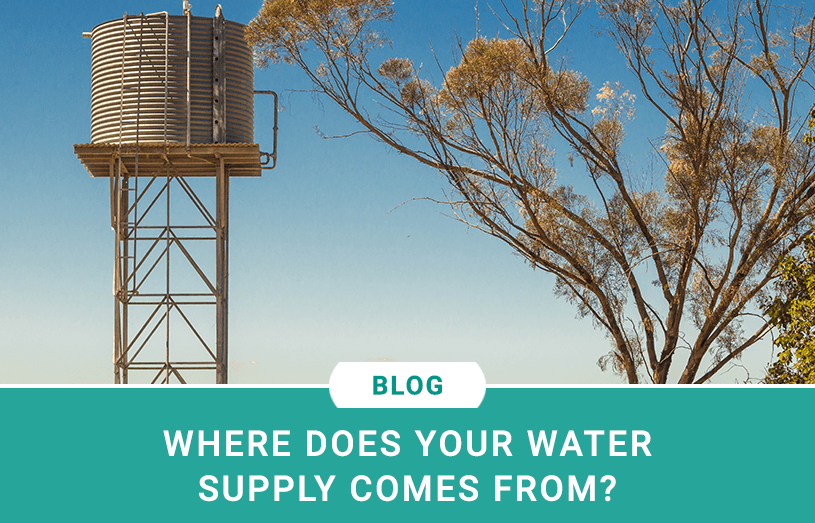Everyone knows how important water is and that it makes the majority of our body. It keeps everything going, connects all systems together and brings the important stuff like vitamins and minerals to the organs that need them.

Water is like public transport for our body and all of the cells are the bus stops. So how important is it for passengers like nutritional vitamins and minerals to visit all of the bus stops? An average human cannot live if it skips water for a week, so you tell us.
Is my water healthy?
What many people neglect is the fact that you need to test the quality of your water. If it’s so important, we can’t let it be full of toxins and contaminants, right?
The answer to the question stated in the title isn’t so simple. It all depends on the source of the water that supplies you, your plumbing, the soil the water has been through and many more things.
The smallest concern you may have is the fact that you need to treat hard water, but bigger and more serious things like pesticides, lead and parasites can be a much bigger issue and can certainly affect your health.
How can I keep my water healthy?
Well, once you decide to do this, the first proper step would be to analyze the water you’re currently drinking. You can’t start a change without knowing the starting point, right?
One of the first questions to pop into mind is „where does my water come from?” and you’re currently probably looking for the answer. We’ll get into that, but let us tell you one more thing.
Once you get a hold of all of this information about your water, you will possibly want to „fix it“ and get rid of all the toxic things. That’s the part where you look into water filters. They’re the cheapest and the most efficient choice.
So, how does water reach my faucet?
If you ask a kid where water comes from, they will probably say the faucet. Adults, however, know that there is a long journey the water needs to go through to reach us. It’s important to know a bit both about the source and the journey to be able to test the water. In the end, you need to know who you’re calling and asking for a test kit.
The two basic sources
It’s easy to understand that your source of water, and the type of the source, depends on where you live and how close you are to any possible natural ones. Also, let’s rule out the option of distilling seawater, drinking rainwater and using your water directly from a lake or a river.
The two basic sources that we’re staring with are wells and public water supply. Let’s discuss the difference.
A well:
- a private source of water you do not pay for
- mostly used on farms and country fields
- not so often today
- not practical for modern living
- cannot be used in urban areas
- comes directly from the soil or the underground waters
A public water supply:
- you pay them to give you water
- the amount you pay depends on the amount you use
- you don’t own the water source- used in urban areas and compatible with modern living
- usually goes through a complicated plumbing journey
The well situation is pretty simple to understand. The public water supply one is a bit more complicated, but it comes down to the same thing. The supplier is the one with „the well” and you’re paying for the transport and the fact that the source is not on your property.
Where does a public water supplier get the water?
Yeah, we saw this question coming. It’s a completely rational one and we understand where it comes from, so we prepared an answer already. It probably won’t stun you.
There are two sources the supplier could be using: groundwater and surface water.
Groundwater:
- the water that is deep in the soil or the ground
- a well has to be built so that the water can be accessed
- the well is not a classic one, rather an industrial type and it is made by heavy-duty drilling
- the water gets pumped up to the surface and is transported
Surface water:
- water that usually has to be taken from lakes, rivers, and possibly streams
- the supplier has to make a building where the whole process happens
- the water has to be analyzed and treated a lot more than the groundwater
- this is the most popular method suppliers use
How is the water treated?
Each source has its problems and pluses. Groundwater is usually a bit better because it’s preserved, but this depends on the soil. If it’s a very used and often fertilized soil we’re talking about, there may be a lot of herbicides and pesticides in it.
Surface water, on the other hand, can be easily contaminated by people, trash and animals living in them, as well as bacteria that forms up due to better conditions.
It’s all up to the case and that’s why all water has to be cleaned. The supplier has to remove possible chemicals, impurities, and toxins.
Wait, how is the water in my house not pure then?
You have to understand a few concepts, to begin with. The process of cleaning the water goes through is expensive and gets more and more costly when you’re removing small particles and specific, rare toxins. Many suppliers do not want to spend additional cash on cleaning „the optional” things that have not been banned by the state.
They’re making the water „safe enough“, not completely safe. We can’t blame everything on them, though. Even if they clean all of the impurities in the facilities, the water that comes to us won’t be clean.
The plumbing it’s going through isn’t clean. The reservoirs the water is kept in isn’t completely safe. Even the process of water recycling itself can harm us. It helps the environment, sure, but can it really be thoroughly cleaned multiple times?Even if you get your water in bottles, not through plumbing, the bottle itself probably isn’t safe due to the chemicals in it.
So, what now?
Yeah, we get it. You have been overloaded with a lot of information. That’s what happens when you start researching all of these complicated things.
If you feel like your health is at risk and you are not sure about the water quality your state is providing, make sure to contact your water supplier. Many labs do water testing and you can give them a sample so you know what you’re dealing with.
We would advise you to take action immediately if you have felt a change in odor or taste. Get a water filter or an urgent lab result to see what further actions you need to do.
Some people decide to get water filters and they change them up every once in a while, while others completely convert to bottled water. It’s up to you.
Summary
Water is an important part of our daily lives. We can get it from a private well, but many people get it from a public supplier. If you feel like the quality of your water doesn’t fit up to the standards, make sure to take action.
Investigating a bit about the water source your supplier uses, about the things in your water and about the nearest labs that could help you out is usually the trio you begin with. Good luck!




